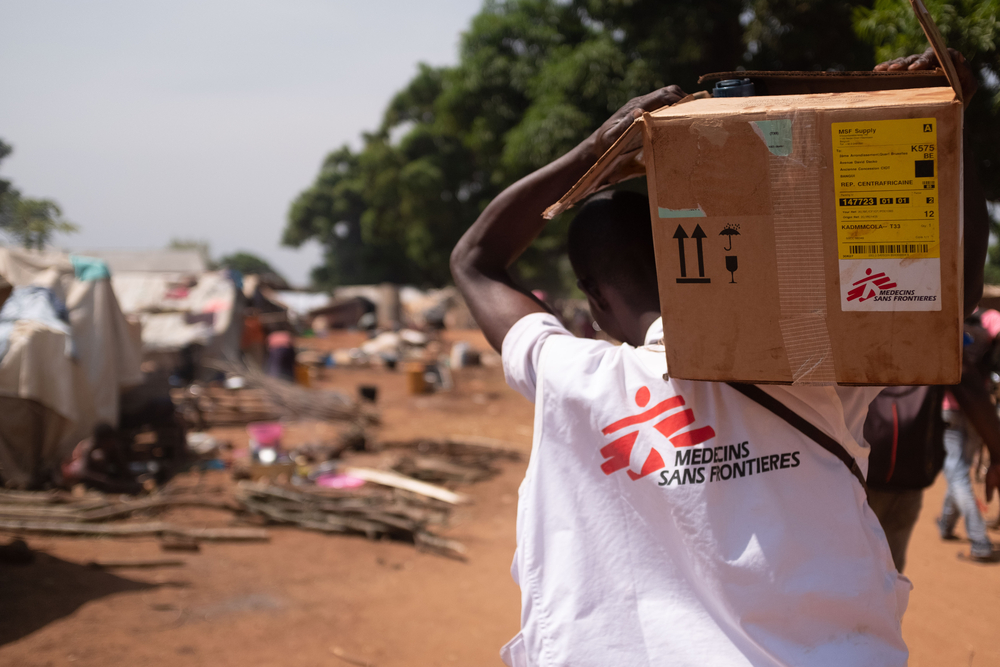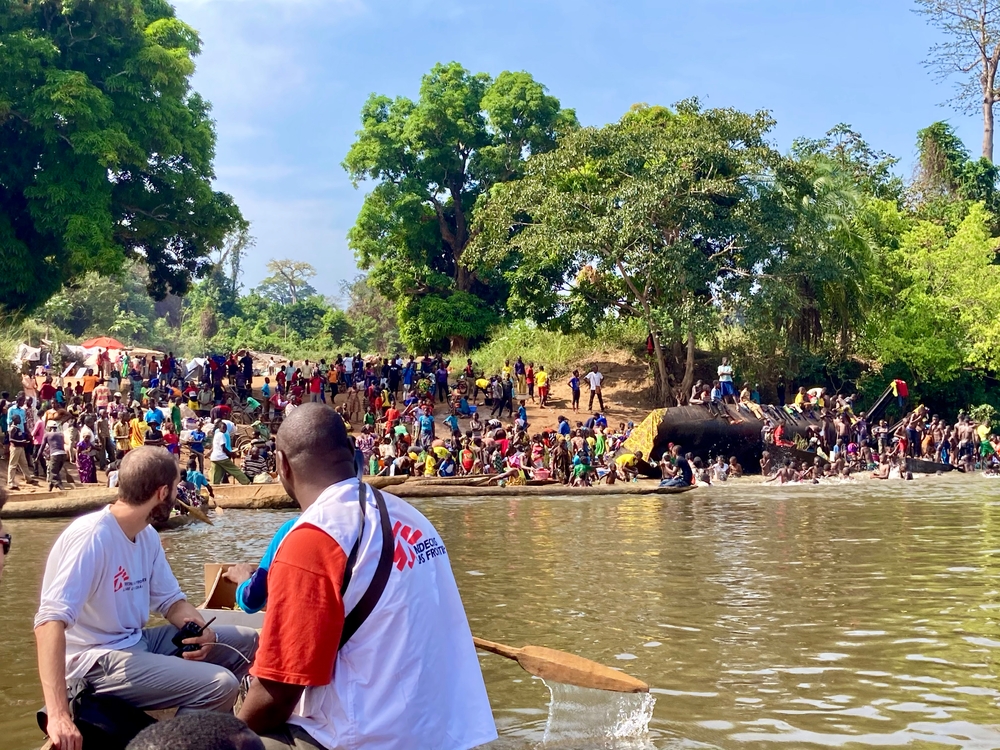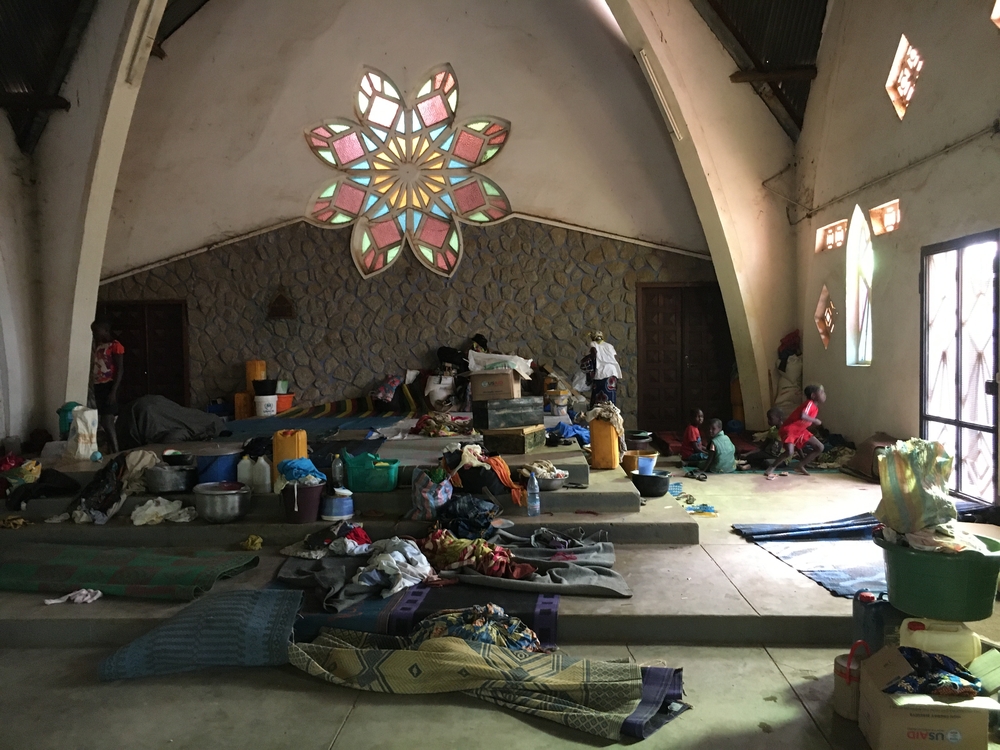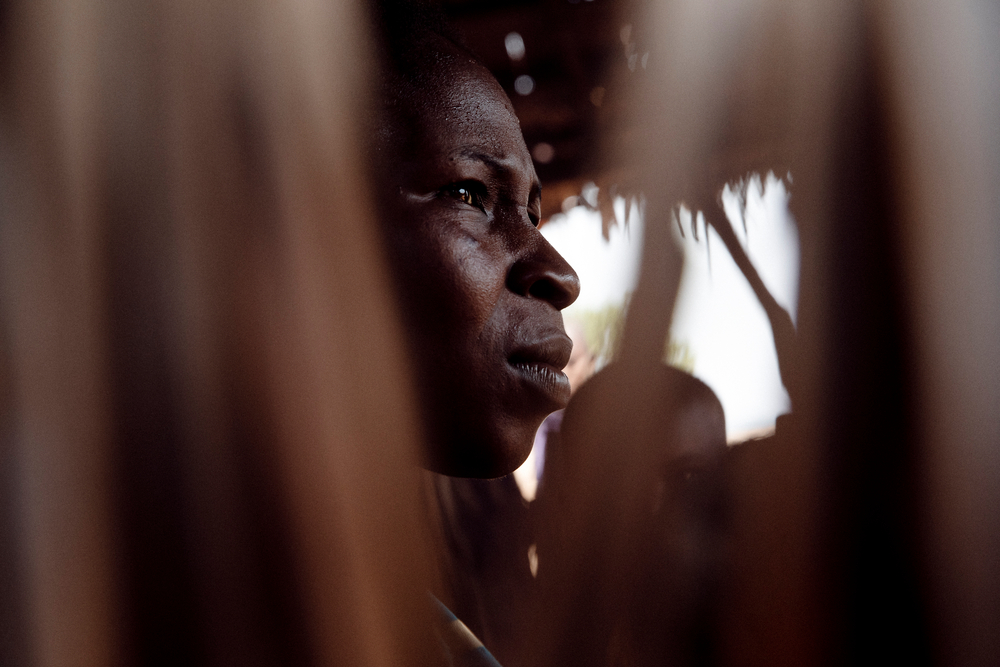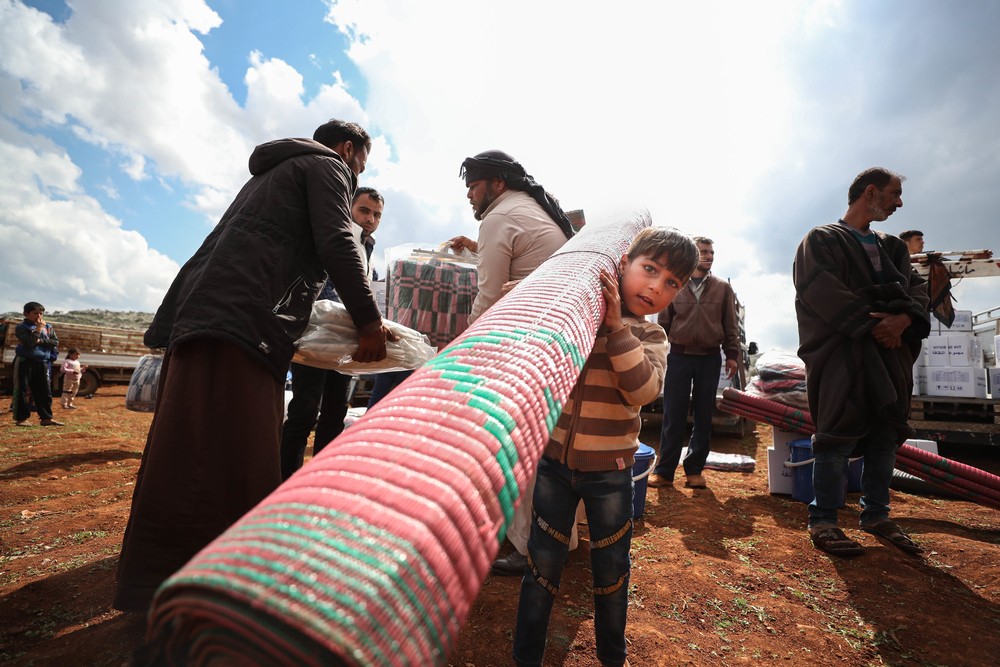Responding to the needs of those displaced
Tens of thousands of people have been displaced from their homes by the latest cycle of violence, which began in December 2020. Many are living in very precarious conditions, both within Central African Republic and in neighbouring countries.
In the southeast of the country, more than 10,000 people fled Bangassou during an offensive on the city on 3 January and crossed the Mbomou River to find refuge in the village of Ndu, Democratic Republic of Congo. MSF teams, who have been supporting mother and child healthcare in the local health centre in Ndu since 2017, have been responding to the needs of those who have been displaced.
“With the massive influx of refugees in Ndu, we immediately increased our support to the health centre by bringing in extra medicines, vaccines and additional staff,” says MSF project coordinator Marco Doneda. “The number of medical consultations has exploded, with more than 110 patients seen each day on average, mainly women and children suffering from for malaria, diarrhoea and respiratory infections.
"In view of the needs, we will continue to increase our medical capacity in the health centre in the coming days, as well as our capacity to respond to potential epidemics by reinforcing routine vaccination.”
As well as providing the refugees with medical care, MSF teams have installed a water purification system which supplies three containers with river water that has been treated to make it safe for drinking.
“Access to water is crucial to prevent the spread of waterborne diseases,” says Doneda. “Living conditions in Ndu are very poor, with very little access to sanitation.”

